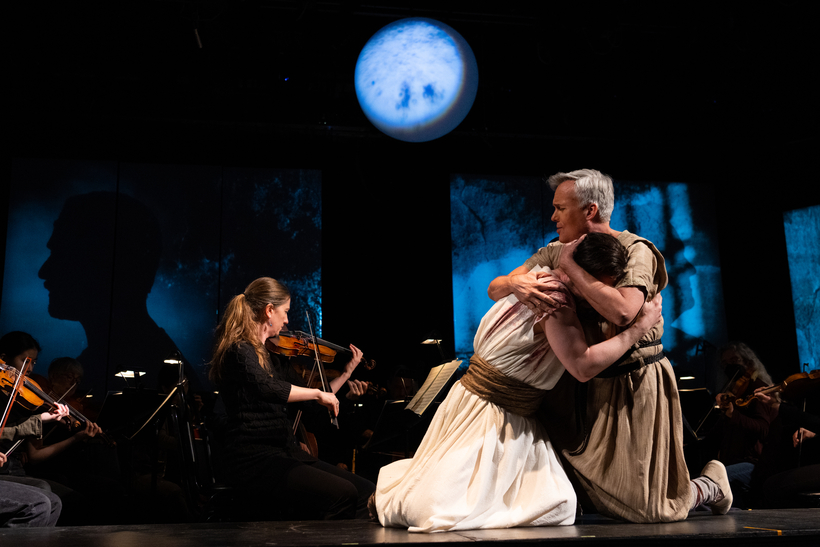Boston Baroque bills itself as North America’s first permanent Baroque orchestra. In its 50th season under the harpsichordist Martin Pearlman, its founder and music director, the ensemble continues to evolve and thrive. A year ago, Pearlman’s forces dazzled in the Handel rarity Amadigi di Gaula, staged with ingenious economy in a local radio studio, with the instrumentalists in full view of the live audience and viewers online. On April 21, Boston Baroque writes its next chapter with a livestream of Iphigénie en Tauride, finest of the so-called “reform” operas of Christoph Willibald Gluck. The video remains available on demand for the next 30 days.
The great minds of the Enlightenment were much enamored of Iphigenia, best known to them from the plays of Euripides. Goethe premiered his play Iphigenia auf Tauris in Weimar in 1779—the same year Gluck introduced his opera on the same subject in Paris. As dramatized in Gluck’s prequel Iphigénie en Aulide five years earlier, the gods demanded the sacrifice of the Greek general Agamemnon’s daughter Iphigenia before raising the winds that would carry the Greek army across the water to Troy. And indeed, the girl was led to the altar—where the goddess Diana snatched her up, setting her down among barbarians far away.
As high priestess in her new home, it was now Iphigenia’s lot to wield the knife against any stray outlanders. Years later, who falls into her hands but her brother Orestes, consumed with guilt. Oh, the Greeks! Orestes has murdered their mother to avenge the death of their father, whom their mother murdered to avenge the sacrifice of Iphigenia. Against all odds, the vicious cycle is broken at last.

Iphigénie en Tauride is the opera in which Gluck the reformer most fully realized his agenda. Away with the Baroque masters’ endless successions of symmetrically structured, dramatically inert arias! (Looking at you, Handel! Looking at you, too, Vivaldi!) No more “dry” sing-song patter. Streamline the drama! Jettison vocal fireworks in favor of truth that springs from the heart.
Despite powerful opposition, Gluck triumphed. Then came other reformers—Mozart and Wagner to name two of the most relevant—and the world moved on. Some today find Gluck’s style stately to the point of ennui (“music to hang drapes by,” one friend says). That complaint doesn’t hold at all for the opening sequence of Iphigénie en Tauride—a brief moment of radiant calm swept away by a raging tempest, punctuated by Iphigénie’s appalled cries. Still less does it apply to her lament “Ô, malheureuse Iphigénie,” celestially poised, written in a major key, yet an arrow to the heart.
In the end, Iphigénie en Tauride is the Baroque opera that calls Baroque convention into question. As such, it’s an inspired vehicle for Boston Baroque. At press time, word went out that the show would go on, as shows must, with Soula Parassidis assuming the title role for an injured colleague, the fresh-voiced, emotionally transparent colleague Wendy Bryn Harmer. Here’s hoping a new star’s been born. Jesse Blumberg sings Oreste, seconded by William Burden as his boon companion Pylade. Angela Yam sings Diana, the goddess ex machinawho cuts the Gordian knot off a plot. Mo Zhou is the stage director.
Iphigénie en Tauride is available for streaming on IDAGIO
Matthew Gurewitsch writes about opera and classical music for AIR MAIL.He lives in Hawaii

